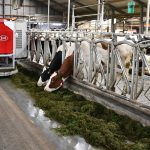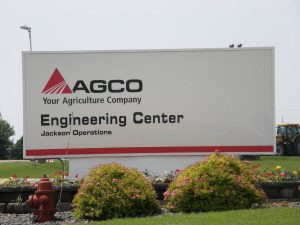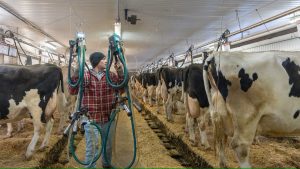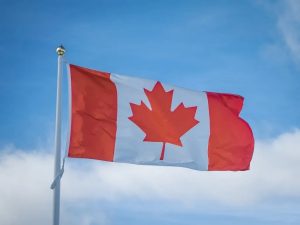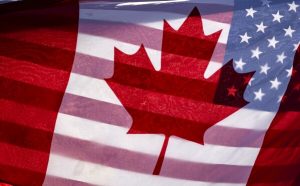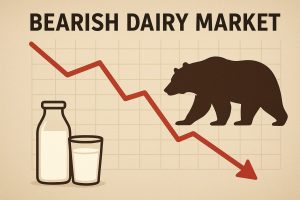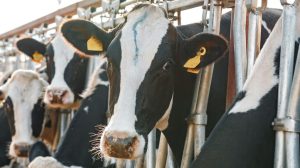
Manage tariffs first and then talk retaliation if necessary, say organizations.
If there was a common thread among producer groups Glacier FarmMedia canvassed regarding Canadian counter-tariffs, it’s that few were willing to talk about counter-tariffs.
They instead shared their frustrations over U.S. President Donald Trump’s potentially comprehensive tariffs on Canadian goods and services.
Chris Davison, president and CEO of the Canola Council of Canada, says canola growers are among those taking a “wait and see” approach to tariffs. That means any issues with Canadian counter-tariffs will be broached when or if the U.S. tariffs materialize.
“If we were faced with tariffs, and if the (Canadian) government were to decide to proceed with retaliatory tariffs, obviously we would want that done in a way that minimizes the impact on the canola industry,” said Davison March 26.
“We can’t afford as an industry to add more costs in the already very tough and challenging circumstances the industry is facing in terms of demand for our products today.”
The impact of tariffs — be they from the U.S., China or retaliatory tariffs by Canada — on the Canadian canola industry will depend on three things, said Davison: the size of the tariffs, the products to which they’re applied and the length of time they’re in place.
“At a minimum, tariffs create uncertainty and unpredictability,” he said.

They make planning and decision-making harder, increase costs at high levels. They restrict or close markets.
“As of today, we don’t know what, if any, tariffs Canadian canola or canola products might face from the U.S. and so it will very much depend on if or not that comes to pass and then what, if anything, the government decides to do in response to that.”
Davison would prefer to see neither Canada nor the U.S. hurt by tariffs.
“We have a highly integrated canola industry between Canada and the United States, and that benefits not just Canada but the U.S. significantly as well in terms of farmers, consumers and businesses on both sides of the border.
“When we have these integrated supply chains that rely on smooth, predictable trade, we don’t want to adversely impact parties on either side of the border in that regard.”
He does not think the brunt of any tariff activity will be felt by canola growers this spring — at least for those who have already purchased their seed and inputs.
“Farmers who plant canola every year, of which there are about 40,000 across Canada, are notoriously good planners and they plan out of necessity months, if not longer, in advance.”
Davison believes canola producers are already planning to plant less canola this year in response to tariffs and lower crop prices, but some may switch those acres back to canola, depending on the tariff outlook.
“I think we will go into Spring 2025 seeding with significant plans that are already in place by farmers, but also with a limited number of acres that will be in flux, that farmers will be looking to see if they can optimize their plans for 2025.”
Disruptive
A March 27 email from the Canadian Pork Council re-confimed the council’s stance on tariffs.

“The Canadian Pork Council remains firmly opposed to tariffs because they disrupt food security on both sides of the border,” it read.
“The integrated nature of the North American pork industry means that trade barriers ultimately harm producers and consumers in both Canada and the United States.”
The email addressed CPC’s support of the federal government in its efforts to navigate complex trade challenges.
“We trust that ongoing discussions will prioritize the stability and competitiveness of Canadian agriculture while maintaining strong trade relationships with key partners.”
As in most supply-managed industries, the Egg Farmers of Canada’s focus is primarily on meeting domestic need. However, that doesn’t shield them from the effects of tariffs.

“Like most sectors, an extended trade disruption with the U.S. could affect the availability and costs of critical inputs into farming and within our overall food supply chain, such as feed ingredients,” wrote the organization in an email response March 27.
“While this is a challenging time for many, we appreciate the collaborative approach across governments and value chain to find solutions that support farmers, Canada’s agriculture sector and most importantly, Canadians in all regions of the country.”
David Wiens, president of Dairy Farmers of Canada, said the dairy industry is also not immune to the effects of tariffs, despite its supply management-driven domestic focus.
“Like all Canadians, we think there are no winners in the current tariff situation, and we are deeply concerned about the impacts that this will have on consumers, industries, and economies on both sides of the border,” wrote Wiens in an email dated March 26..
“Under the supply-managed system, dairy farmers prioritize meeting the needs of the Canadian consumers. Tariffs will affect all sectors of agriculture including dairy, in part because of the reliance on foreign inputs. Equipment, fertilizers, veterinary products and other inputs cross the border on both sides, and the costs of these will likely be impacted.”
He emphasized DFC’s own participation in finding ways to tackle a new economic reality.
“We are working collaboratively with governments and other industry stakeholders to find solutions to the current tariff situation with the U.S. and expect that they will continue to stand up for Canadian agriculture and farmers.”
You can now read the most important #news on #eDairyNews #Whatsapp channels!!!
🇺🇸 eDairy News INGLÊS: https://whatsapp.com/channel/0029VaKsjzGDTkJyIN6hcP1K

